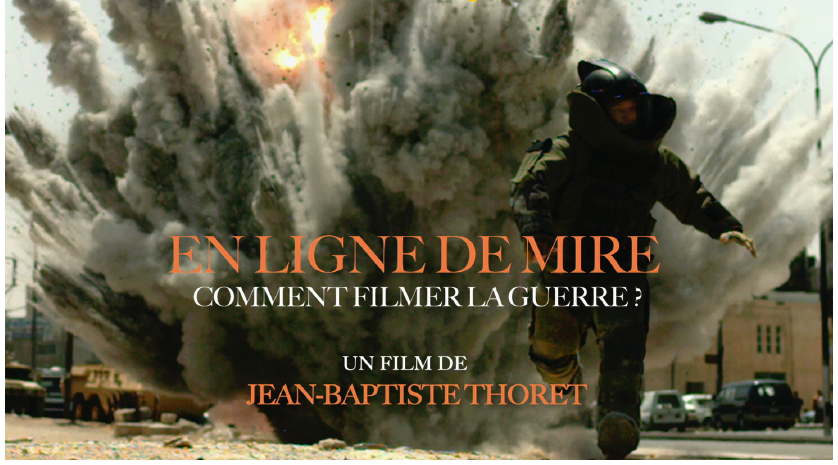
In the documentary directed by Jean-Baptiste Thoret, “Shoot! Filming a War” presents the experiences of various war film directors as they discuss their respective processes for recreating these violent pieces of history as well as the perspectives of historians and researchers who have worked on such films.
In the documentary directed by Jean-Baptiste Thoret, “Shoot! Filming a War” presents the experiences of various war film directors as they discuss their respective processes for recreating these violent pieces of history as well as the perspectives of historians and researchers who have worked on such films. Screened at the 2016 WARM Festival, this film offers an insight into the purpose of war films, the decisions involved in the artistic creation, and the challenges in recreating often controversial historical events with a particular focus on the making of new films on modern warfare.
The film includes interviews with Bertran Tavernier (Capitaine Conan), Bruno Dumont (Flandres), Clement Cogitore (Neither Heaven Nor Earth), Jean-Pierre Jeunet (A Very Long Engagement), Florent Emilio Siri (Intimate Enemies), Jean-Jacques Annaud (Enemy at the Gates), and Alice Winocour (Maryland). Particular scenes from each of these directors’ films are shown, along with American productions as sources of comparison to their works.
While the directors unanimously verify the importance of the genre in recognizing the impact of war on culture, they offer various understandings of the essence of war itself. War is barbarous, cannibalistic, medieval; war is about passionate love; war will not end; war is the most primitive game. From these root perspectives, directors then start to answer the question: why film war?
One crucial point the directors emphasize is the consideration of how heroism is depicted in the film being produced. The filmmakers agree that the necessity is not to depict the hero as a good man going into war and a better man returning home. This representation is not the reality for many soldiers returning from war, and furthermore, it blinds society to the struggle soldiers experience when reintegrating into life at home. If the process is not portrayed and recognized accurately, necessary support beyond just the families of soldiers will remain insufficient. Furthermore, combatants who do not identify with this story of heroism are susceptible to feelings of inadequacy, failure, guilt, and regret.
In contrast to this idea of heroism, the film notes that the “bad hero” evokes deeper responses to reconcile the realities of war. The bad hero works on the “trials inside himself,” and resonates with the human condition that shares in these struggles.
The challenges continue for the directors in creating films of modern warfare. The times of interstate conflicts and formal actors give way to non-state combatants, civilian involvement, interventions from the international community, and modern weaponry, such as drones. The 20th-century experience of soldiers on battlefields no longer communicates an accurate illustration of war. As modern warfare continues to evolve, directors must remain vigilant of these changes for the accuracy of their films.
—
“Shoot! Filming a War” had its Balkan premiere during the 3rd annual War Art Reporting and Memory (WARM) Festival. The WARM Festival took place in Sarajevo from 26 June to 2 July 2016. Organized by the WARM Foundation in collaboration with the Post-Conflict Research Center (PCRC), the Festival brings together artists, reporters, academics and activists around the topic of contemporary conflict.






